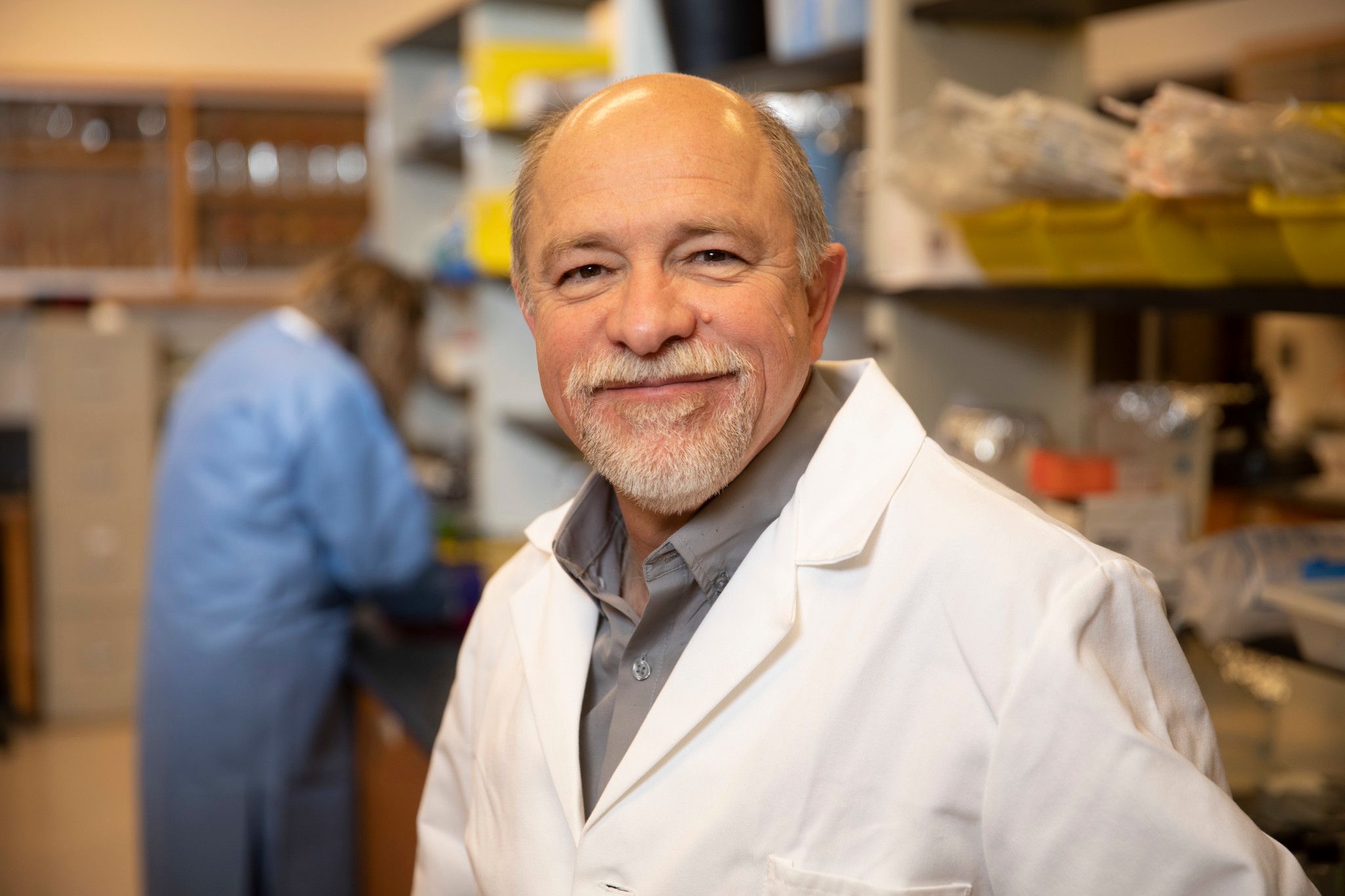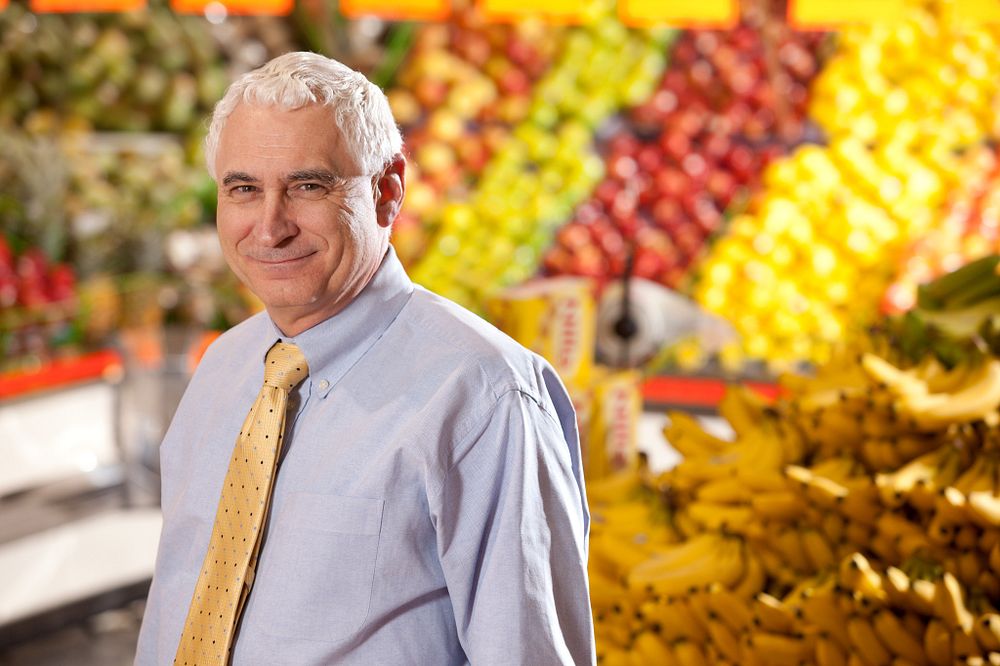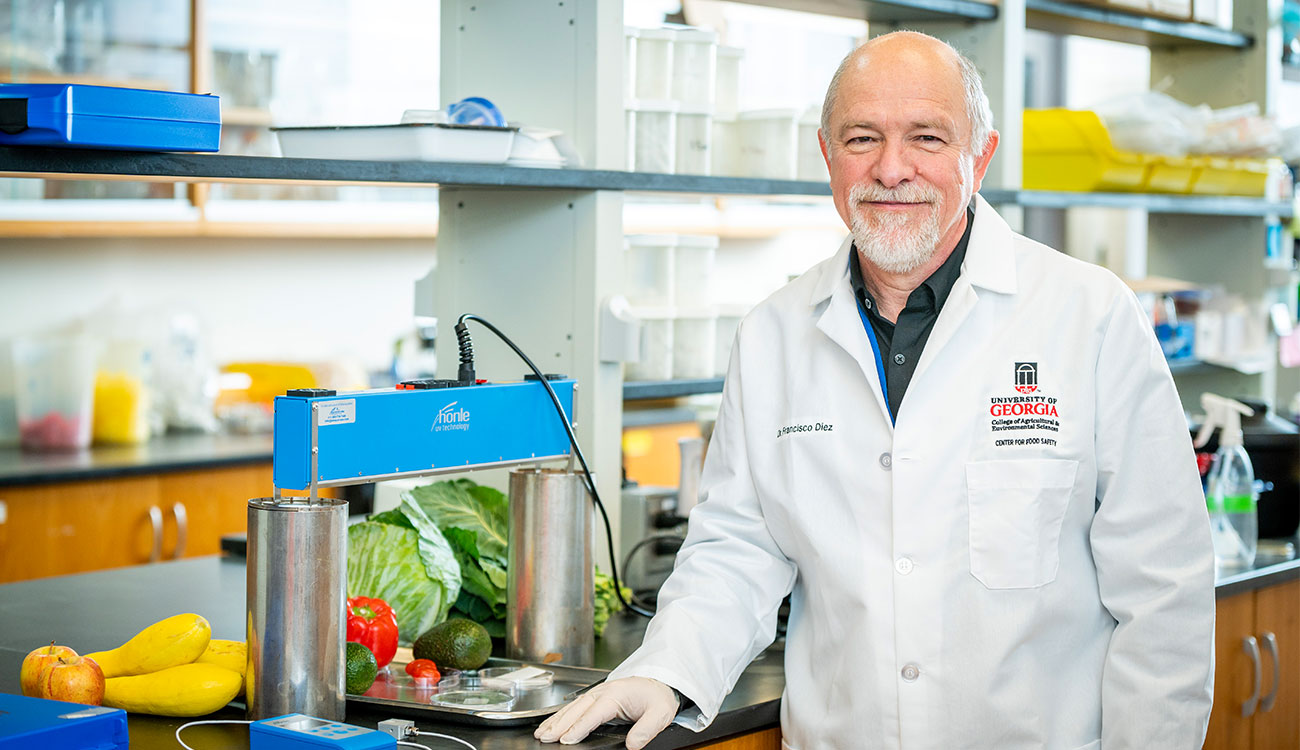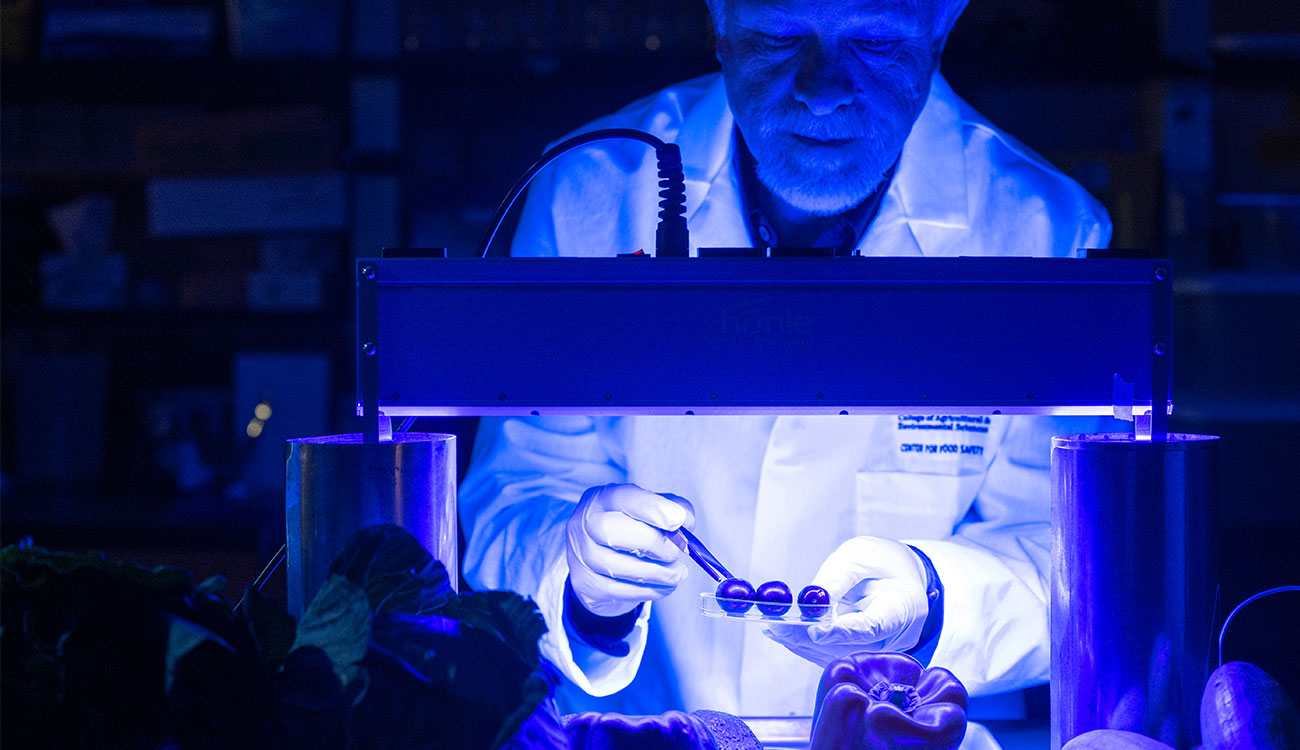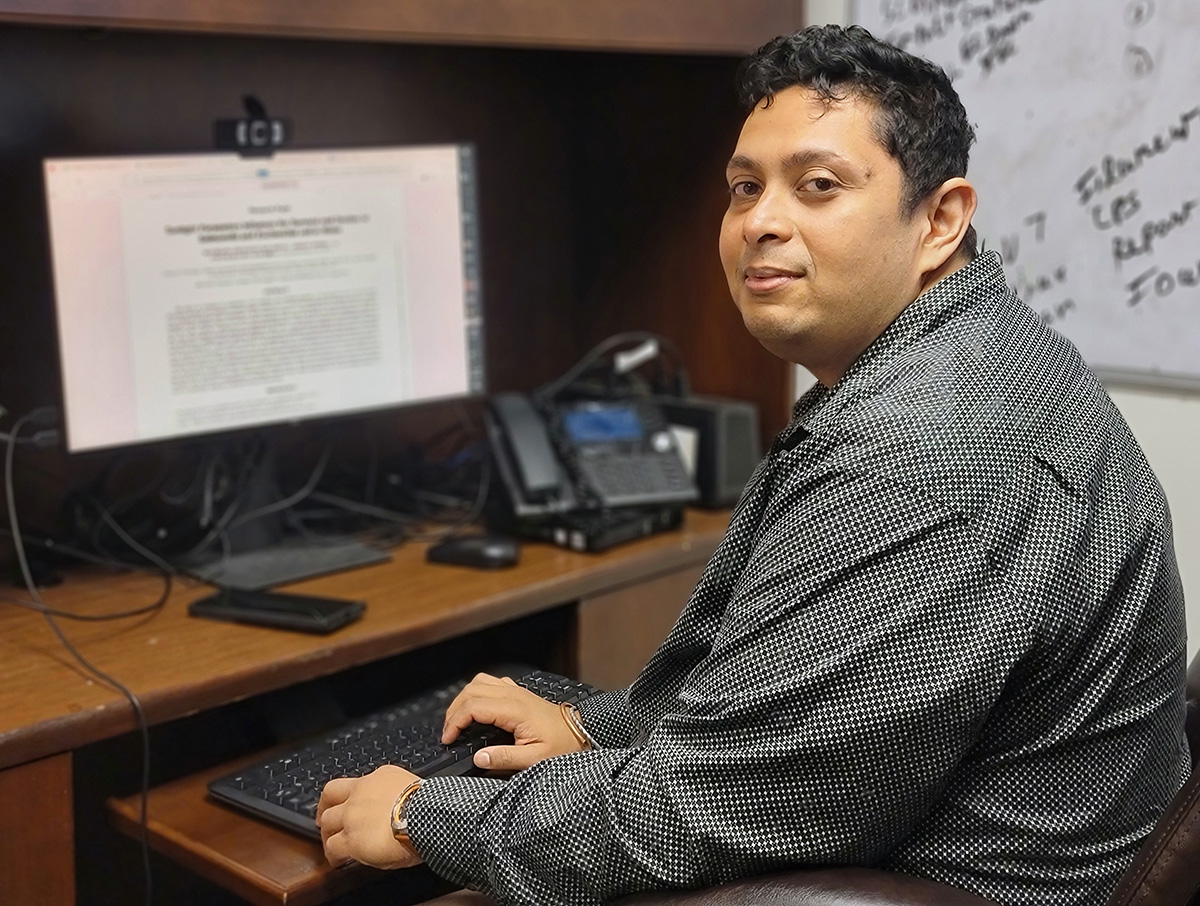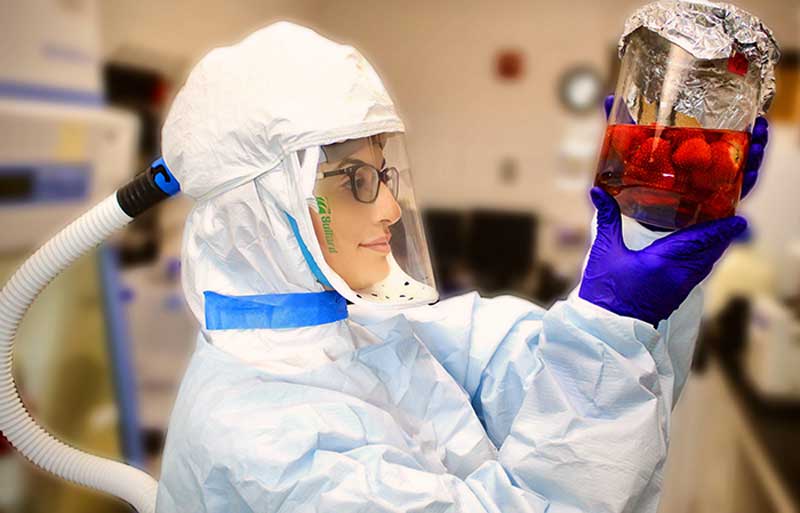.jpg) CAES News
CAES News
Blue Light Study
Consider your favorite breakfast cereal, granola bar or other similar food, then imagine the production facility where it is made. If you picture large machines, conveyor belts and lots of moving parts, you get the gist of the environment. Keeping all these moving parts clean is of utmost concern to manufacturers, who spend considerable time and investment on food safety, making sure their production lines are free from harmful pathogens that may make consumers sick.

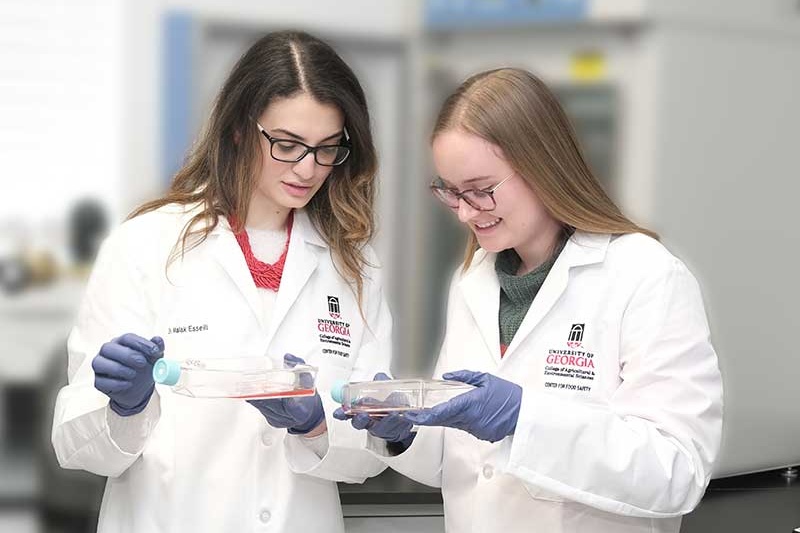
-Cropped.jpg)
.jpg)
